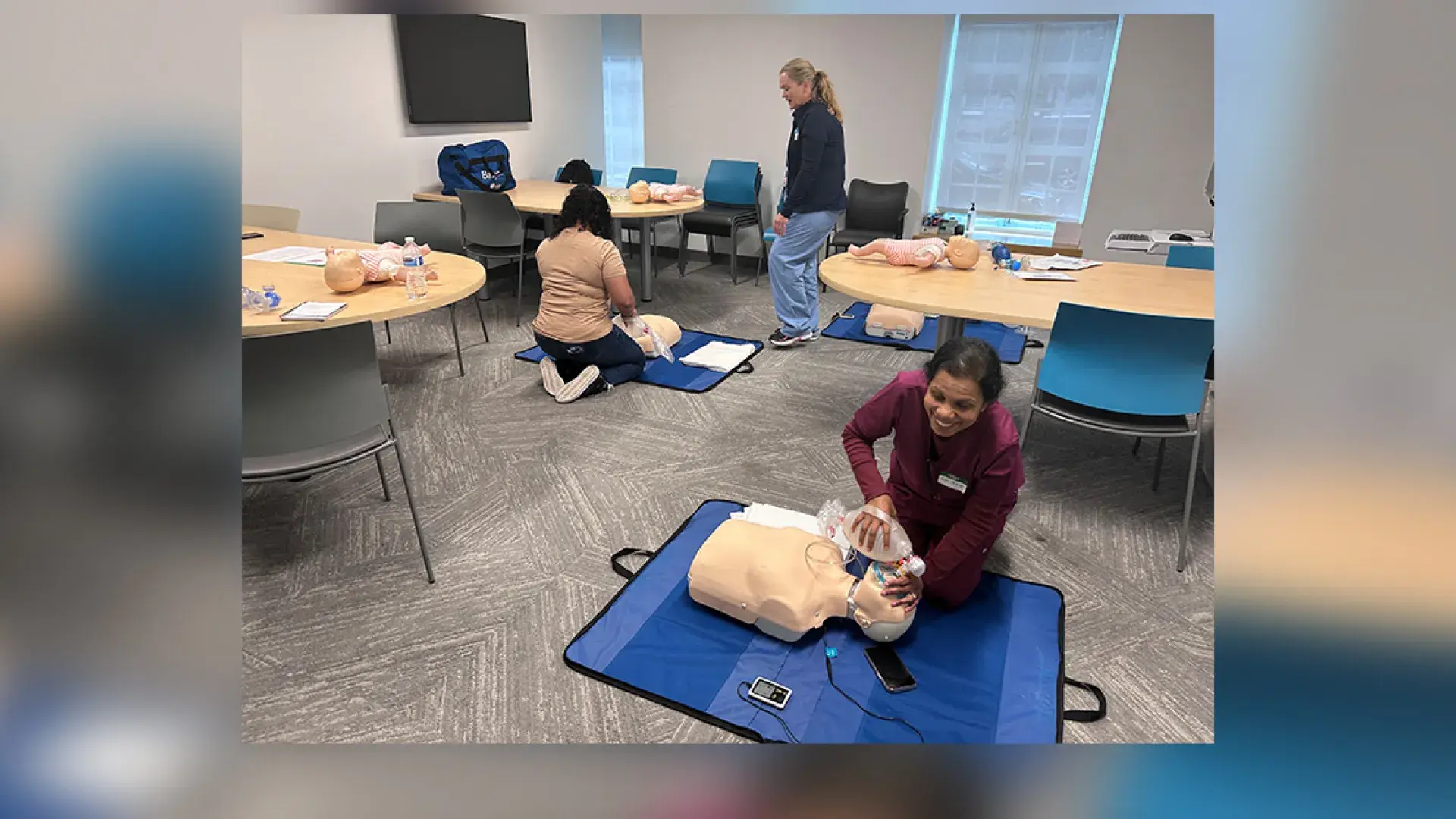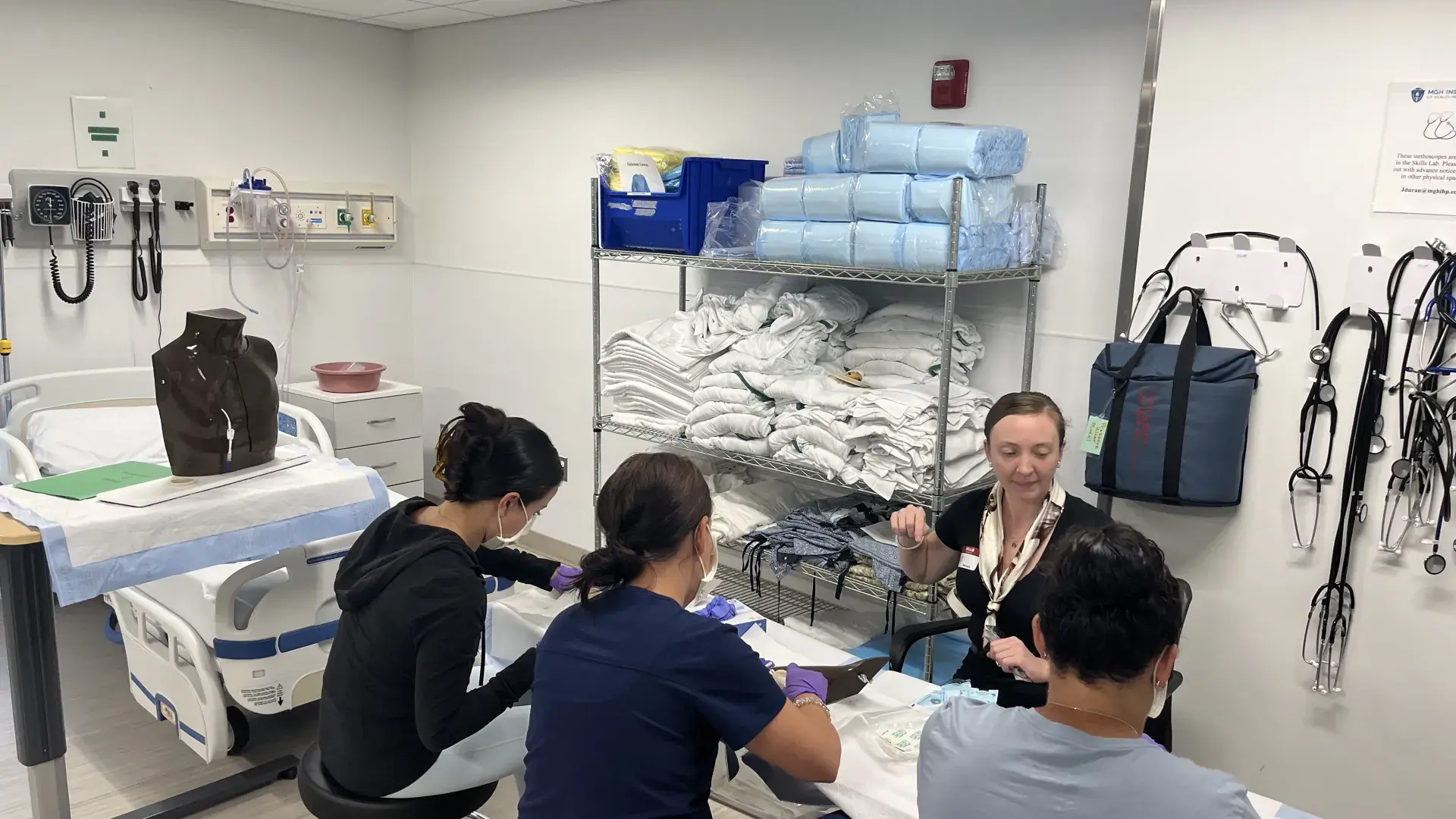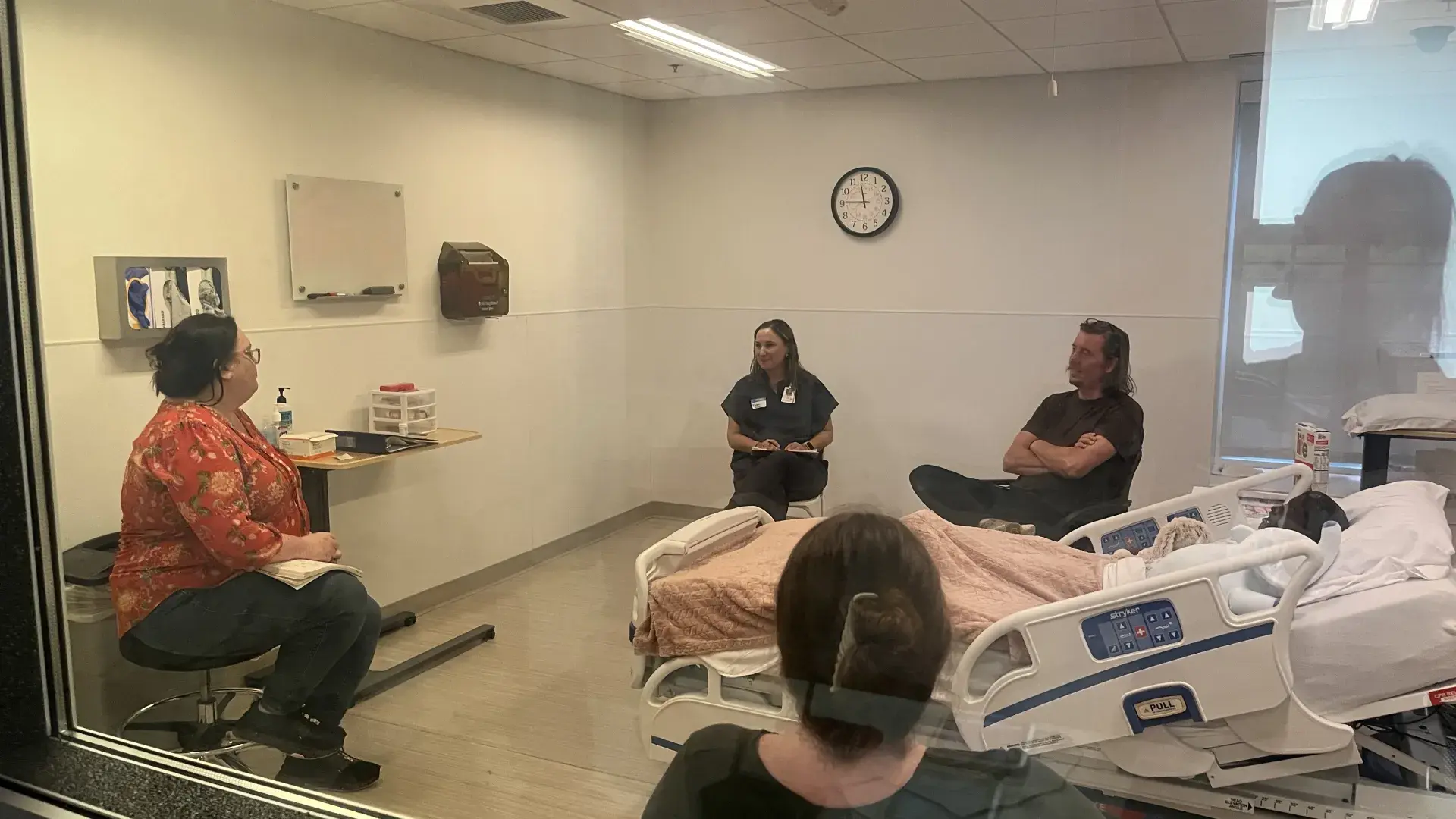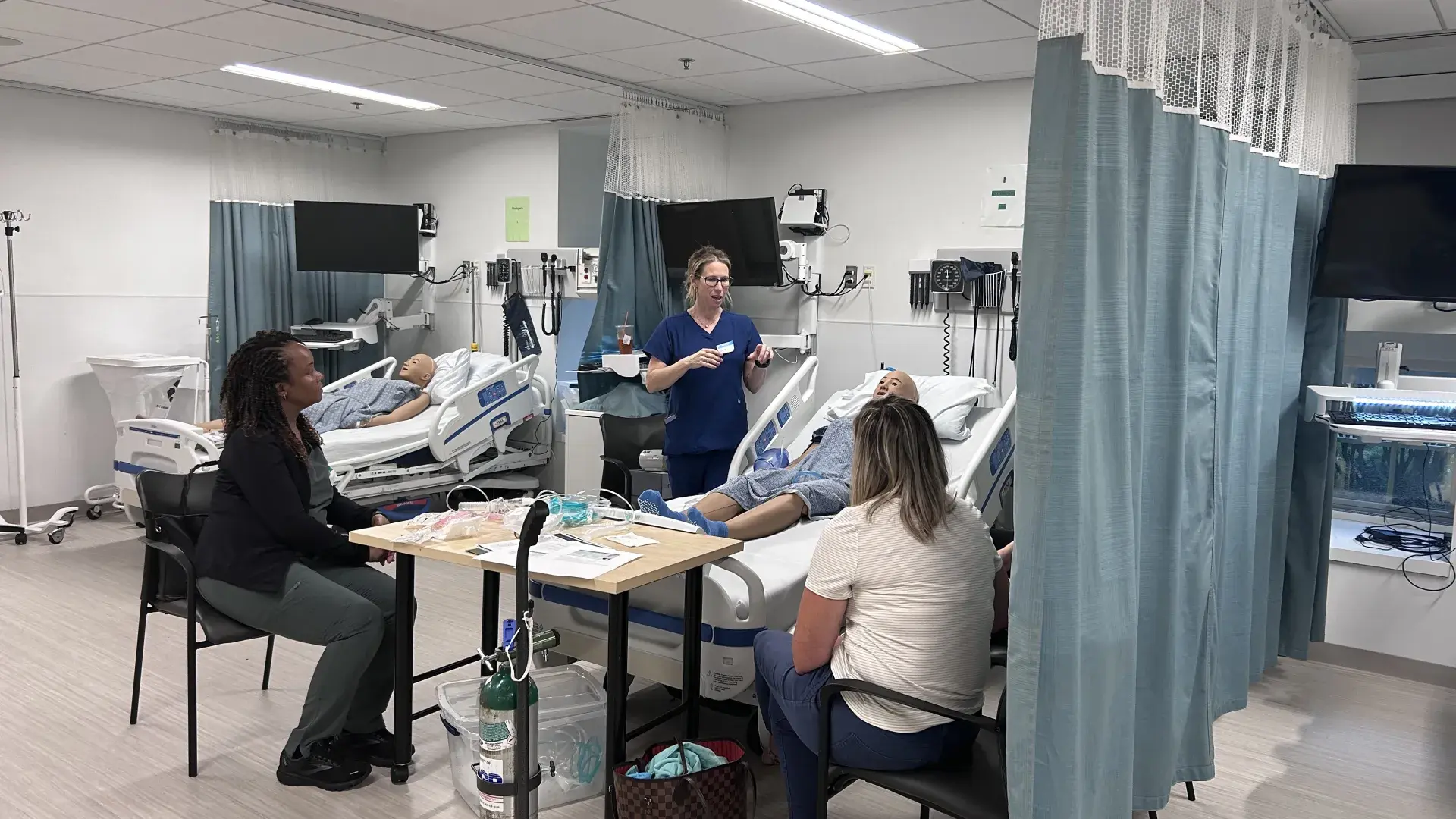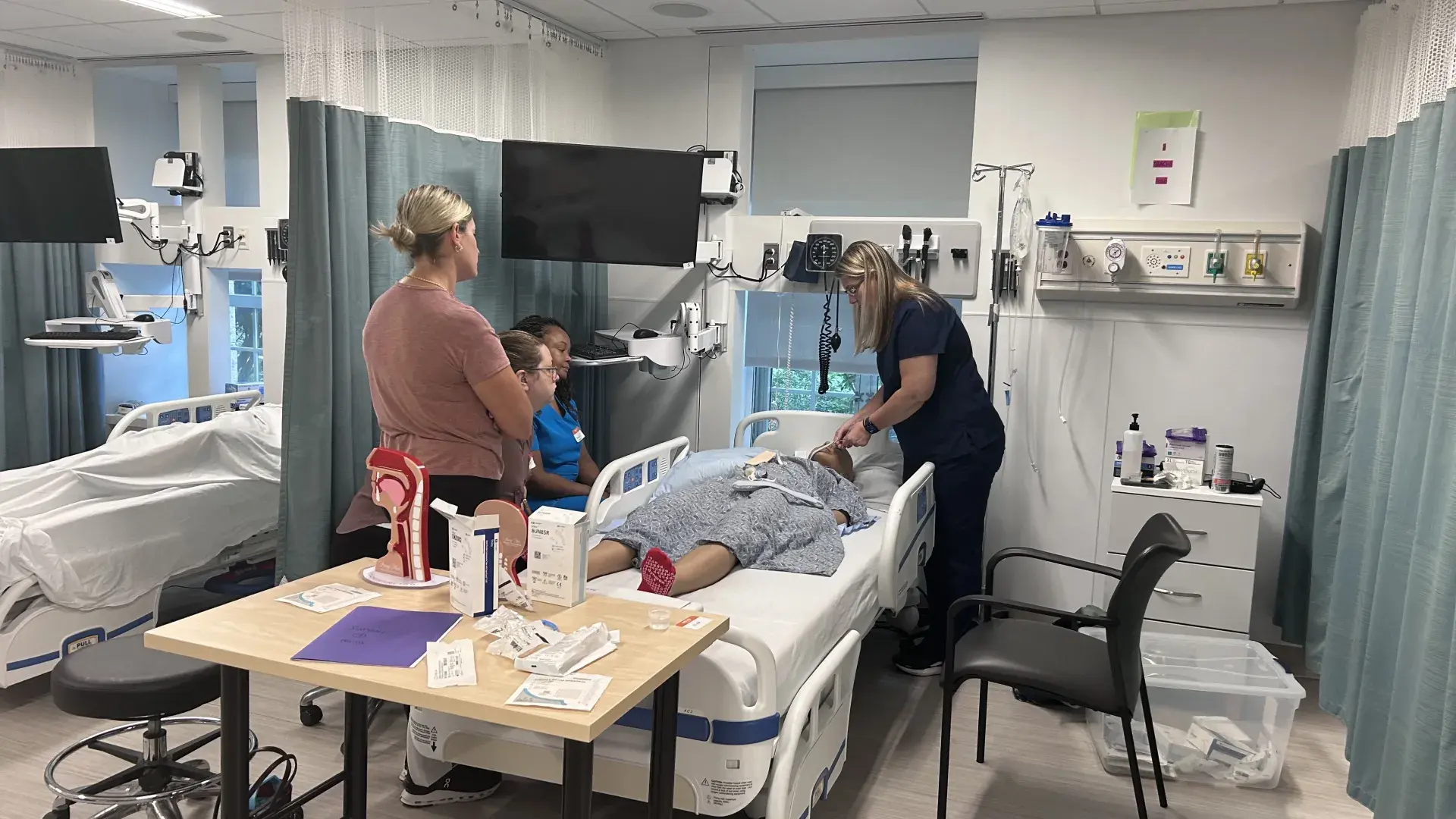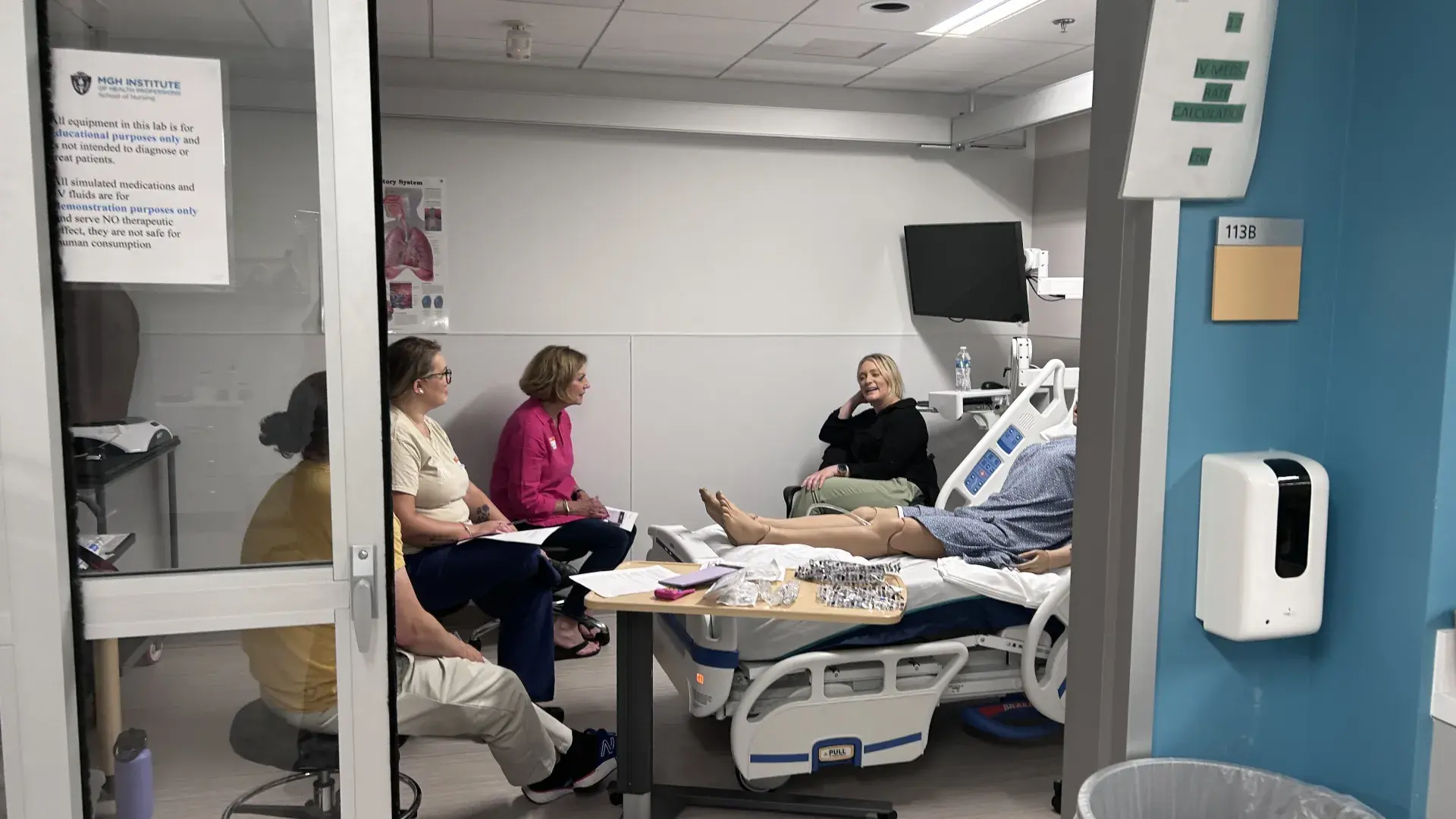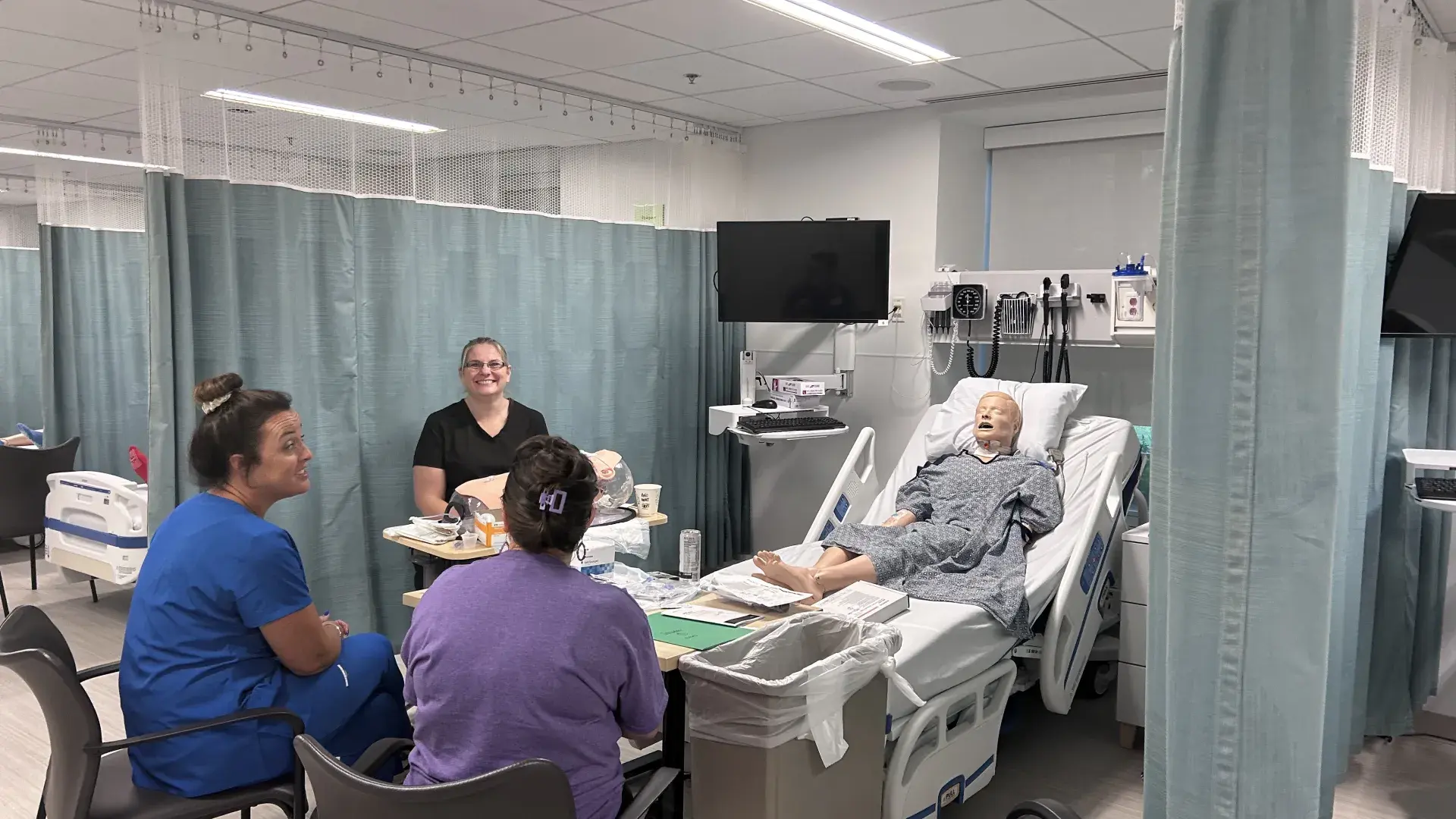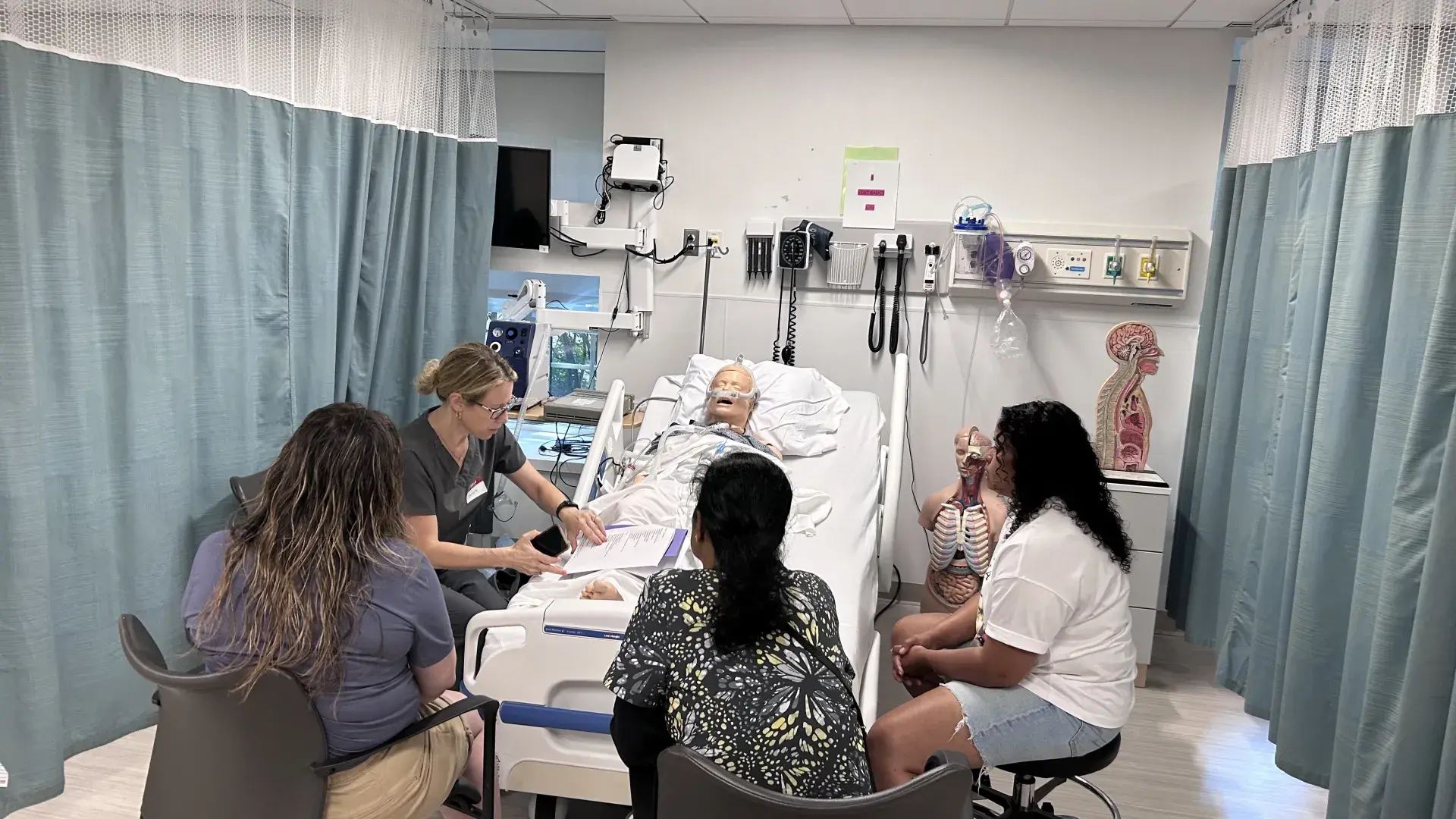
MassHealth initiative will train over 140 in-home nurses to offer their skills to the workforce during two-year program
Six dozen newly trained complex care nurses are now ready to care for people with multiple disabilities and health conditions in their homes to help fill a pressing care need for families across the Commonwealth, thanks to a MassHealth training program that’s being run by the MGH Institute’s School of Nursing.
Awarded last October by the Commonwealth of Massachusetts’ Executive Office of Health and Human Services, the $1.1 million program will train 144 nurses over two years to provide in-home care for children and adults who require intensive, continuous skilled nursing support so that they can stay at home.
“I just can't say enough about how well it went,” said training program director Brenna Morse of the weekend skills events in Shouse earlier this summer when the first cohort graduated. “Each day we did a dozen different stations that were skills correlating with what they learned in the online class. We had three simulations, including live actors and high-fidelity mannequins.” The skills intensives also featured a job fair, providing nurses with the opportunity to connect with agencies and learn how to enroll as a MassHealth Independent Nurse, enabling them to start serving families in need.
The 12-week course with weekend intensive attracted a mix of registered nurses, licensed practical nurses, new graduates, school nurses and home care nurses who were looking to shore up their skills. The course content included an introduction to complex care, disability history and why it's so important, condition across body systems, common diagnoses and treatments, and what really happens in home care – beyond what the textbook might say.
“Here's what it's like when something doesn’t go according to plan, and not all of the resources and personnel of a hospital are nearby for help,” said Morse on what nursing trainees were taught. “You don't have a supply, and you're totally by yourself in this person's house and they have a respiratory complication, abdominal concern, or musculoskeletal condition that needs attention. After reviewing diagnoses across the body systems and common interventions in the home, we then ended the course with a primer on documentation, legal implications, and finding your next job. So, it was really everything in the 12-week course.”
Along with the learners, IHP instructors, and external nurses, parents of complex care patients were on hand to teach, adding a critical voice for these nurses to hear and understand.
“We can care a lot about people with complex conditions, but our main faculty members don't have people with complex conditions in our homes, and we're not seeing the impact of the shortage firsthand,” noted Morse. “To have the parents explain that their kids are people too, who are deserving of community experiences and care, and should be able to go to school safely. They also shared how every person in their household has been impacted by a shortage of nurses, and on the positive side, they spoke about how nurses have changed their lives for the better when they're available. That was a tremendous value add.”
Coordinated by Morse, Assistant Professor Karen Hunt, Instructor Jen Duran, and Project Coordinator Alyson Pollard, the training program is expected to graduate 72 complex care nurses in the first year and another 72 in Year 2, which meets the MassHealth goal to train more nurses with complex care skills.
“This is exactly what we hoped for when we awarded the MGH Institute this contract,” said Mike Levine, Assistant Secretary for MassHealth. “From the modules to the simulations to the impressive facilities and the learning that went on, we are grateful to the Institute for preparing Massachusetts’s newest complex care nurses so well.”
As the third cohort gets underway this fall, Morse is already looking ahead to what’s next. She hopes this content can be standard learning in nursing schools so that students can learn about complex care as specialty, so they may consider pursuing a rewarding and fulfilling career in this field.
“We're going to take all of this and repackage it for nursing schools,” said an optimistic Morse. “I'll actually market it to them and do some hand-over-hand training with deans, directors, and instructors and explain the easiest way for them to implement this and just make sure it really gets put into programs.
“Looking statewide, there's certainly policy work to be done. There are some incentives now with loan forgiveness and rate increases for these nurses. I will certainly be looking to keep this work going with the Commonwealth; whether it's more grant opportunities or helping them in any way to spread the word.”
Do you have a story the Office of Strategic Communications should know about? If so, let us know.
